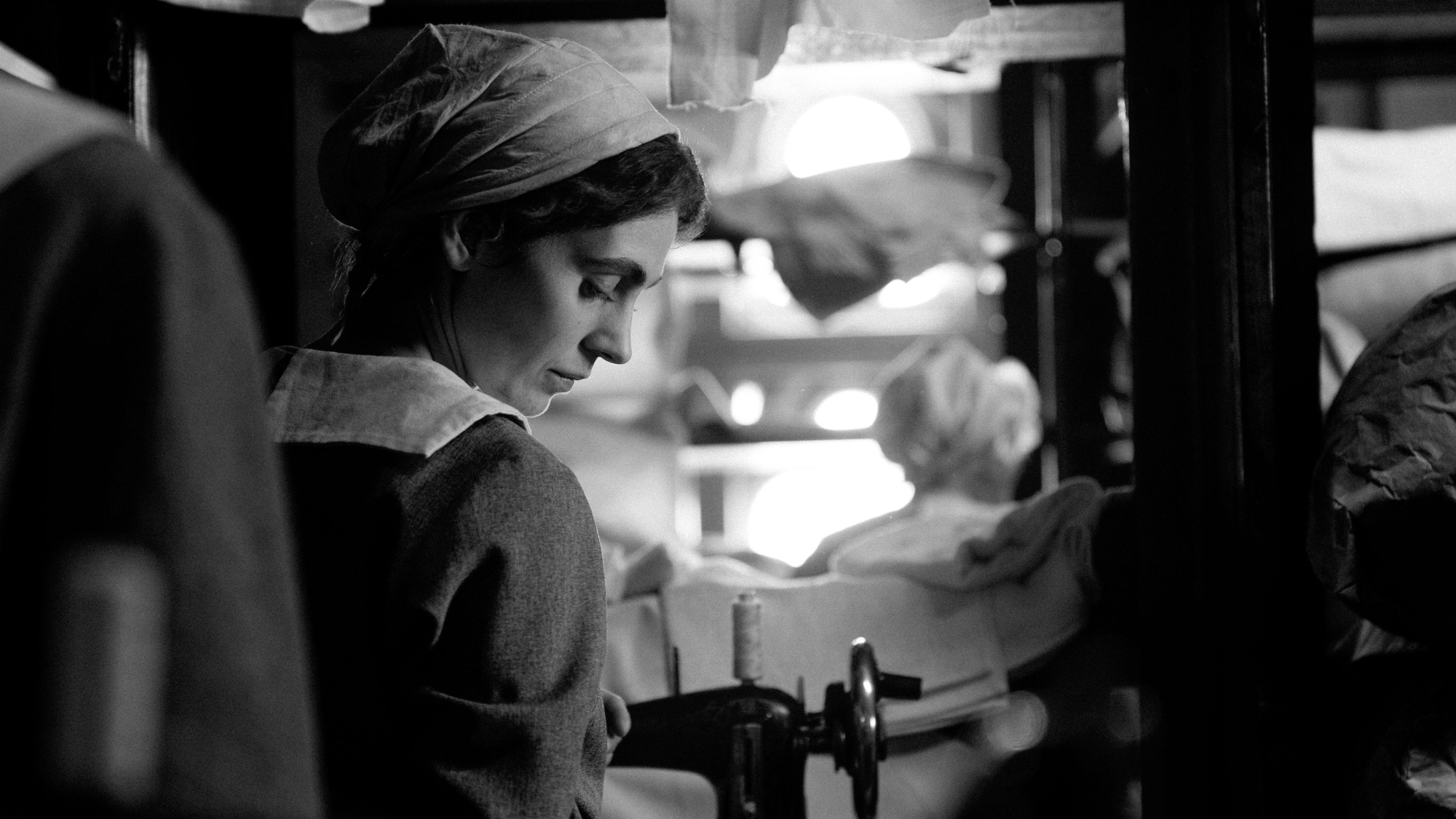The Girl with the Needle: a 'dark and scorching' gothic horror
Magnus von Horn's latest film about a seamstress in Copenhagen after the First World War unfolds into a study of 'living terror'

A free daily email with the biggest news stories of the day – and the best features from TheWeek.com
You are now subscribed
Your newsletter sign-up was successful
Roughly an hour into "The Girl with the Needle", there's a moment so shocking it "elicited gasps of outrage" across the cinema, said Kevin Maher in The Times.
Set in post-First World War Copenhagen, the true-life drama had, until that point, been unfolding as a "gripping story of female struggle". Then the "twist hits" and Magnus von Horn's "inky" black-and-white film transforms into "one of the most disturbing gothic horrors of recent years". "Forget Bill Skarsgard in 'Nosferatu'", this is a disconcerting study of "living terror and the darkest amorality".
The action follows "destitute" seamstress Karoline (Vic Carmen Sonne) who finds herself pregnant, unemployed and without a home, said Wendy Ide in The Observer. A "chance encounter" with Dagmar (Trine Dyrholm), a friendly woman who runs a sweetshop and backstreet adoption agency, offers a glimmer of hope for a better life. But hope, like everything in this "horribly compelling" film, is "threadbare, undernourished and rotten to the core".
The Week
Escape your echo chamber. Get the facts behind the news, plus analysis from multiple perspectives.

Sign up for The Week's Free Newsletters
From our morning news briefing to a weekly Good News Newsletter, get the best of The Week delivered directly to your inbox.
From our morning news briefing to a weekly Good News Newsletter, get the best of The Week delivered directly to your inbox.
Cinematographer Michal Dymek and production designer Jagna Dobesz have conjured up a gloomy gothic world of "winding cobblestone streets" and "Escher-like staircases", said Catherine Wheatley in Sight and Sound. Shot in high-contrast monochrome, "skewed, anxiety-inducing angles" contribute to a feeling of "looming dread, dwarfing Karoline or boxing her in".
Von Horn's "dark and scorching" film "draws a grim true story from the Danish capital's past and spins it halfway to a Grimm one", said Robbie Collin in The Telegraph. The Swedish director records Karoline's "spiralling hopelessness" with "steely exactitude" and Dyrholm is "terrific" in the "tricky" role of Dagmar, "exuding a chill even during acts of ostensible kindness".
Sonne gives a "phenomenal, feral" performance as Karoline, portraying her as a "sly and opportunistic emotional scavenger" with a "capacity for cruelty", said Ide in The Observer.
As the film draws to a close, added Wheatley in Sight and Sound, "what lingers in the memory is the stench of fear and the shuddering horror of this rotten world, which might not, after all, be so far from our own".
A free daily email with the biggest news stories of the day – and the best features from TheWeek.com
Irenie Forshaw is the features editor at The Week, covering arts, culture and travel. She began her career in journalism at Leeds University, where she wrote for the student newspaper, The Gryphon, before working at The Guardian and The New Statesman Group. Irenie then became a senior writer at Elite Traveler, where she oversaw The Experts column.
-
 6 exquisite homes with vast acreage
6 exquisite homes with vast acreageFeature Featuring an off-the-grid contemporary home in New Mexico and lakefront farmhouse in Massachusetts
-
 Film reviews: ‘Wuthering Heights,’ ‘Good Luck, Have Fun, Don’t Die,’ and ‘Sirat’
Film reviews: ‘Wuthering Heights,’ ‘Good Luck, Have Fun, Don’t Die,’ and ‘Sirat’Feature An inconvenient love torments a would-be couple, a gonzo time traveler seeks to save humanity from AI, and a father’s desperate search goes deeply sideways
-
 Political cartoons for February 16
Political cartoons for February 16Cartoons Monday’s political cartoons include President's Day, a valentine from the Epstein files, and more